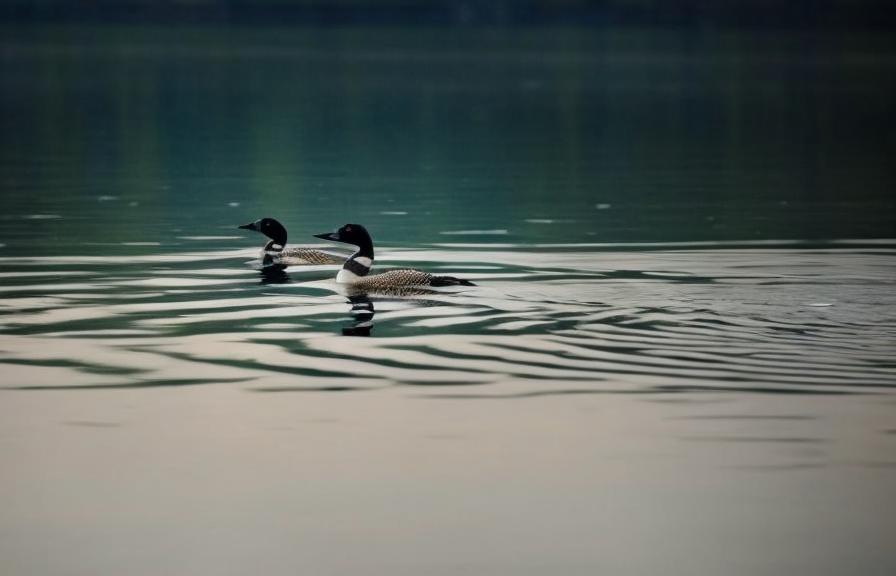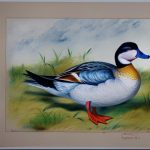Ducks are not only adorable and entertaining animals to have on a farm or in a backyard, but they can also be quite valuable. Some duck breeds are considered to be the most expensive in the world due to their rarity, unique characteristics, and high demand. Among the most expensive duck breeds are the Mandarin Duck, the Cayuga Duck, and the Indian Runner Duck.
The Mandarin Duck is one of the most beautiful and sought-after duck breeds in the world. Known for its stunning plumage and vibrant colors, the Mandarin Duck is native to East Asia and is highly prized for its ornamental value. The Cayuga Duck, on the other hand, is a domestic breed that originated in the United States. Its unique iridescent green-black plumage sets it apart from other duck breeds and contributes to its high value. Lastly, the Indian Runner Duck is a popular breed known for its upright stance and distinctive egg-laying abilities. These ducks are highly valued for their productivity and are often sought after by farmers and breeders. These three duck breeds are just a few examples of the most expensive and sought-after ducks in the world.
Key Takeaways
- The most expensive duck breeds in the world include the Mandarin Duck, the Cayuga Duck, and the Indian Runner Duck.
- Factors that determine the cost of duck breeds include rarity, unique coloration, and special characteristics such as egg-laying ability.
- The rarity and exclusivity of expensive duck breeds make them highly sought after by collectors and enthusiasts.
- The benefits of owning expensive duck breeds include their beauty, potential for breeding, and potential for exhibition and competition.
- To care for expensive duck breeds, it is important to provide proper housing, nutrition, and veterinary care.
- The market for expensive duck breeds is driven by collectors, breeders, and enthusiasts who are willing to pay a premium for rare and unique ducks.
- Considerations before investing in expensive duck breeds include the cost of care, space requirements, and the potential for return on investment.
Factors that Determine the Cost of Duck Breeds
Several factors contribute to the cost of duck breeds, making some breeds more expensive than others. One of the primary factors is the rarity of the breed. Rare duck breeds that are not commonly found in certain regions or countries tend to be more expensive due to their limited availability. Additionally, unique physical characteristics such as rare plumage colors or patterns can also drive up the cost of a duck breed. For example, ducks with unusual color variations or striking patterns are often more valuable than those with standard coloring.
Another factor that determines the cost of duck breeds is their productivity and utility. Ducks that are known for their high egg-laying capabilities or superior meat quality are often more expensive due to their practical value to farmers and breeders. Furthermore, the demand for a particular duck breed can significantly impact its cost. If a breed is highly sought after for its ornamental value, productivity, or other desirable traits, it is likely to be more expensive than less popular breeds. Overall, the cost of duck breeds is influenced by a combination of rarity, unique physical characteristics, productivity, and demand.
The Rarity and Exclusivity of Expensive Duck Breeds
The rarity and exclusivity of expensive duck breeds play a significant role in their high cost. Rare duck breeds that are not commonly found in certain regions or countries are considered to be exclusive and are highly sought after by collectors, breeders, and enthusiasts. The limited availability of these breeds contributes to their high value and makes them desirable to those looking for unique and distinctive ducks to add to their flocks.
Furthermore, the exclusivity of expensive duck breeds is often tied to their unique physical characteristics and ornamental value. Ducks with rare plumage colors, striking patterns, or unusual features are considered to be exclusive due to their distinctiveness and aesthetic appeal. Collectors and breeders are willing to pay a premium for these exclusive breeds in order to add diversity and visual interest to their flocks.
In addition, the exclusivity of expensive duck breeds is also influenced by their historical significance and cultural importance. Some rare duck breeds have a long-standing heritage and are deeply rooted in certain cultures or regions, further adding to their exclusivity and value. Overall, the rarity and exclusivity of expensive duck breeds contribute to their high cost and make them highly coveted among duck enthusiasts.
The Benefits of Owning Expensive Duck Breeds
Owning expensive duck breeds comes with a range of benefits that make them worth the investment for many farmers, breeders, and enthusiasts. One of the primary benefits is the potential for breeding and selling rare ducklings for profit. Expensive duck breeds that are in high demand can be bred to produce offspring with desirable traits, such as unique plumage colors or patterns, which can then be sold at a premium.
Additionally, owning expensive duck breeds can also provide opportunities for exhibition and competition. Rare and exclusive duck breeds are often showcased at poultry shows and exhibitions, where they can attract attention and recognition for their beauty and distinctiveness. Participating in these events can lead to awards, recognition, and even financial rewards for owners of expensive duck breeds.
Furthermore, owning expensive duck breeds can contribute to genetic diversity within a flock, which is important for maintaining healthy and resilient populations. Rare duck breeds often possess genetic traits that are valuable for breeding programs aimed at preserving genetic diversity and preventing inbreeding within duck populations.
Overall, the benefits of owning expensive duck breeds include potential profit from breeding and selling rare ducklings, opportunities for exhibition and competition, and contributions to genetic diversity within duck populations.
How to Care for Expensive Duck Breeds
Caring for expensive duck breeds requires attention to their specific needs in order to ensure their health, well-being, and productivity. Proper housing is essential for expensive duck breeds, as they require adequate space, protection from predators, and access to clean water for swimming and bathing. Additionally, providing a balanced diet that meets their nutritional requirements is crucial for maintaining the health and productivity of expensive duck breeds.
Regular veterinary care is also important for expensive duck breeds in order to monitor their health, prevent diseases, and address any medical issues that may arise. Vaccinations, parasite control, and routine health checks are essential components of caring for expensive duck breeds.
Furthermore, providing enrichment activities such as access to ponds or water features, as well as opportunities for foraging and exploration, is important for the mental and physical well-being of expensive duck breeds. Ducks are social animals and benefit from interaction with other ducks, so providing opportunities for socialization within a flock is also important.
Overall, caring for expensive duck breeds requires attention to their housing, diet, veterinary care, enrichment activities, and socialization in order to ensure their health, well-being, and productivity.
The Market for Expensive Duck Breeds

The market for expensive duck breeds is driven by a combination of factors including demand from collectors, breeders, enthusiasts, and farmers seeking specific traits or characteristics in their flocks. Collectors and enthusiasts are often willing to pay a premium for rare and exclusive duck breeds with unique physical characteristics or ornamental value. Breeders seek out expensive duck breeds with desirable traits such as high egg-laying capabilities or superior meat quality in order to improve the productivity of their flocks.
Furthermore, there is a growing market for exhibition and competition ducks, with owners of expensive duck breeds participating in poultry shows and events where they can showcase their birds and potentially earn recognition and financial rewards.
Additionally, there is a niche market for conservationists and preservationists who seek out rare duck breeds with historical significance or cultural importance in order to contribute to genetic diversity within duck populations.
Overall, the market for expensive duck breeds is diverse and includes demand from collectors, breeders, enthusiasts, farmers, exhibition participants, and conservationists seeking specific traits or characteristics in their flocks.
Considerations Before Investing in Expensive Duck Breeds
Before investing in expensive duck breeds, there are several considerations that potential owners should take into account. One important consideration is the cost of acquiring rare or exclusive duck breeds, as well as ongoing expenses related to housing, feeding, veterinary care, and other aspects of caring for these birds.
Additionally, potential owners should consider the specific needs of expensive duck breeds in terms of housing requirements, diet, veterinary care, enrichment activities, socialization, and other factors that contribute to their health, well-being, and productivity.
Furthermore, it is important to research the market demand for specific traits or characteristics in expensive duck breeds in order to assess potential opportunities for breeding and selling rare ducklings or participating in exhibitions or competitions.
Lastly, potential owners should consider the long-term commitment involved in caring for expensive duck breeds, as well as the potential benefits such as profit from breeding and selling rare ducklings or contributing to genetic diversity within duck populations.
Overall, there are several important considerations that potential owners should take into account before investing in expensive duck breeds in order to make informed decisions about acquiring these valuable birds.
If you’re considering raising expensive duck breeds, you might also be interested in learning about the practical aspects of keeping poultry. Poultry Wizard offers a helpful article on “How Many Chickens Do You Need for a Family of 4?” which provides valuable insights into the ideal number of chickens for a small family. Understanding the right quantity of chickens can help you plan and manage your poultry farm effectively. Check out the article here.
FAQs
What are some expensive duck breeds?
Some expensive duck breeds include the Mandarin duck, the Cayuga duck, the Silver Appleyard duck, and the Saxony duck.
Why are these duck breeds considered expensive?
These duck breeds are considered expensive due to their rarity, unique coloring, and high demand among breeders and collectors.
What factors contribute to the cost of these duck breeds?
Factors that contribute to the cost of these duck breeds include their rarity, breeding difficulty, specialized care requirements, and the quality of their genetics.
Are there any specific care requirements for expensive duck breeds?
Yes, expensive duck breeds may have specific care requirements such as specialized diets, housing needs, and environmental considerations to maintain their health and unique characteristics.
Where can one purchase expensive duck breeds?
Expensive duck breeds can be purchased from reputable breeders, specialty poultry auctions, and through online platforms that cater to rare and exotic poultry breeds.
Meet Walter, the feathered-friend fanatic of Florida! Nestled in the sunshine state, Walter struts through life with his feathered companions, clucking his way to happiness. With a coop that’s fancier than a five-star hotel, he’s the Don Juan of the chicken world. When he’s not teaching his hens to do the cha-cha, you’ll find him in a heated debate with his prized rooster, Sir Clucks-a-Lot. Walter’s poultry passion is no yolk; he’s the sunny-side-up guy you never knew you needed in your flock of friends!







